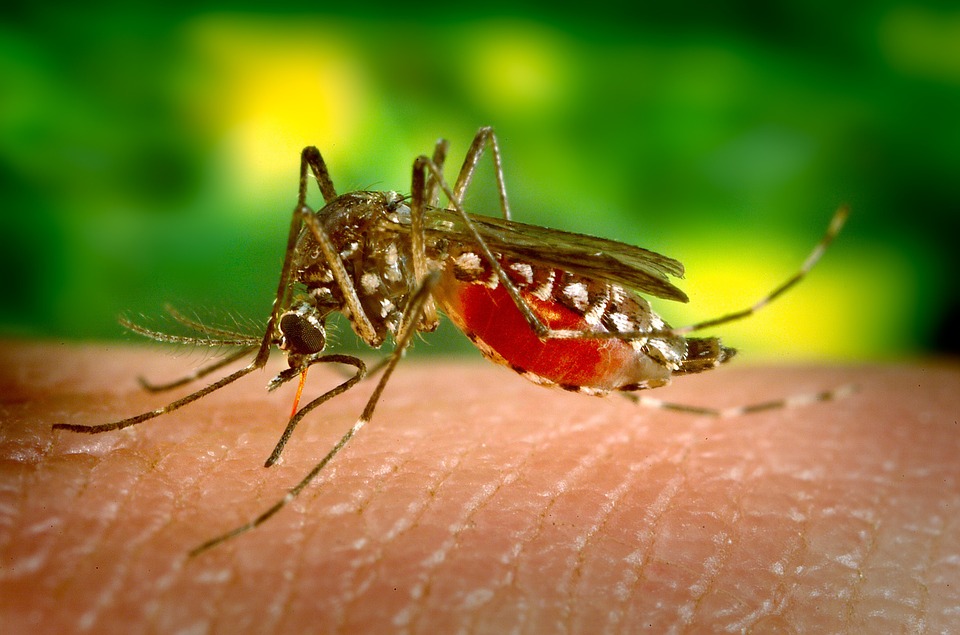latest
State Health Officials Announce Two New Human Cases of West Nile Virus in Massachusetts

The Massachusetts Department of Public Health (DPH) today announced two new human cases of West Nile virus (WNV) in the state this year. Both individuals are male, one in his 50s and the other in his 70s and both were exposed to WNV in Middlesex County.
Yesterday, DPH announced the first human case of WNV identified in Massachusetts this year was also likely exposed in Middlesex County. The Greater Boston area and several towns in Bristol and Worcester counties are already at moderate risk for WNV. There have been no deaths this year associated with WNV.
Based on the three human cases, recent increases in WNV findings in mosquitoes, and weather favorable for mosquito activity, the WNV risk level of an additional 38 communities is being raised from low to moderate. These communities are: Beverly, Danvers, Lynn, Marblehead, Middleton, Nahant, Peabody, Salem, Saugus, Swampscott and Wenham in Essex County; Agawam, Chicopee, East Longmeadow, Longmeadow, Springfield and West Springfield in Hampden County; Bedford, Billerica, Burlington, Carlisle, Lexington, Lincoln, Natick, North Reading, Reading, Sudbury, Wayland, Weston and Wilmington in Middlesex County; Dedham, Needham, and Wellesley in Norfolk County; Chelsea, Revere and Winthrop in Suffolk County; and Grafton and Upton in Worcester County.
“These are the second and third human cases of West Nile virus infection in Massachusetts this year and we are seeing significant expansion of virus activity in mosquitoes,” said Acting Public Health Commissioner Margret Cooke. “Risk from West Nile virus will continue until the first hard frost. As we enjoy the unofficial last weekend of summer and then head back to school and work, it is important for people to remember to continue to take steps to avoid mosquito bites.”
In 2020, there were five human cases of WNV infection identified in Massachusetts. WNV is usually transmitted to humans through the bite of an infected mosquito. While WNV can infect people of all ages, people over the age of 50 are at higher risk for severe disease. Most people infected with WNV will have no symptoms. When present, WNV symptoms tend to include fever and flu-like illness. In rare cases, more severe illness can occur.
People have an important role to play in protecting themselves and their loved ones from illnesses caused by mosquitoes.
Avoid Mosquito Bites
Apply Insect Repellent when Outdoors. Use a repellent with DEET (N, N-diethyl-m-toluamide), permethrin, picaridin (KBR 3023), oil of lemon eucalyptus [p-menthane 3, 8-diol (PMD)], or IR3535 according to the product label. DEET products should not be used on infants under two months of age and should be used in concentrations of 30% or less on older children. Oil of lemon eucalyptus should not be used on children under three years of age.
Be Aware of Peak Mosquito Hours. The hours from dusk to dawn are peak biting times for many mosquitoes. Consider rescheduling outdoor activities that occur during evening or early morning.
Clothing Can Help Reduce Mosquito Bites. Wear long-sleeves, long pants, and socks when outdoors to help keep mosquitoes away from your skin.
Mosquito-Proof Your Home
Drain Standing Water. Mosquitoes lay their eggs in standing water. Limit the number of places around your home for mosquitoes to breed by either draining or discarding items that hold water. Check rain gutters and drains. Empty any unused flowerpots and wading pools, and change the water in birdbaths frequently.
Install or Repair Screens. Keep mosquitoes outside by having tightly-fitting screens on all of your windows and doors.
Protect Your Animals
Animal owners should reduce potential mosquito breeding sites on their property by eliminating standing water from containers such as buckets, tires, and wading pools – especially after heavy rains. Water troughs should be flushed out to reduce mosquitoes near paddock areas. Horse owners should keep horses in indoor stalls at night to reduce their risk of exposure to mosquitoes. Owners should also speak with their veterinarian about mosquito repellents approved for use in animals and vaccinations to prevent WNV and Eastern Equine Encephalitis (EEE). If an animal is diagnosed with WNV or EEE, owners are required to report to the Massachusetts Department of Agricultural Resources’ (MDAR) Division of Animal Health by calling 617-626-1795 and to the DPH by calling 617-983-6800.
More information, including all WNV and EEE positive results, can be found on the Arbovirus Surveillance Information web page at www.mass.gov/dph/mosquito or by calling the DPH Epidemiology Program at 617-983-6800.







You must be logged in to post a comment Login